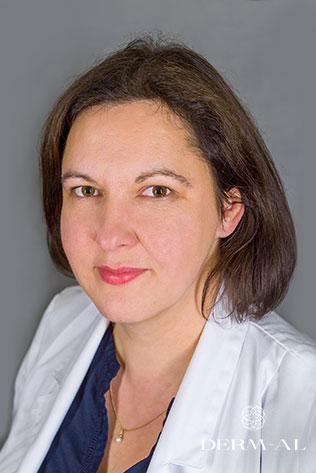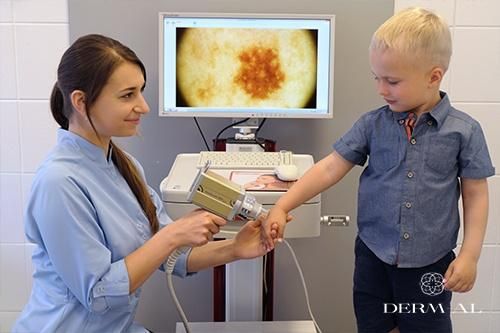Specific Immunotherapy (Desensitization)
- Procedure Description
-
Derm-Al Center provides desensitization treatment for adult patients and children over 5 years of age.
Desensitization, or specific immunotherapy, is a causal treatment for allergic diseases. Its goal is to induce tolerance to the allergen causing allergies in the patient. Regular administration of small doses of the allergen, closely monitored by a doctor, modifies the immune response of the patient's body so that it tolerates allergens in a manner similar to healthy individuals. Desensitization therapy is conducted for patients with allergic rhinitis and conjunctivitis, bronchial asthma, allergies to insect venom, and in selected cases, atopic dermatitis.
Currently, desensitization is performed using the classical method through subcutaneous injections of the vaccine, or alternatively orally or sublingually in the form of tablets or solution drops containing the allergen. The treatment regimen is the same for all routes of administration of the allergenic vaccine and consists of two stages:
Stage I - initial phase involving gradually increasing doses of the vaccine at regular intervals until reaching the maximum tolerated dose by the patient. In the second stage,
Stage II - maintenance phase involving regular administration of the maximum dose achieved in the initial phase at specified time intervals.
Desensitization lasts 3 to 5 years. It can be conducted as year-round treatment or preseasonal treatment. Year-round treatment is used for allergies to allergens that persist chronically and year-round in the patient's environment, such as house dust mites, cat and dog dander, and others, but can also be administered to patients allergic to seasonal allergens such as tree pollen, grasses, or weeds. Preseasonal treatment is reserved for patients allergic to seasonal allergens.
-







